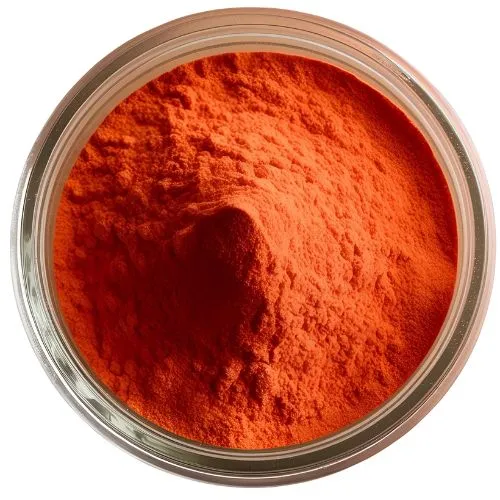What Is Lycopene and Why Is It Essential for Your Diet?
Lycopene, a vibrant red pigment found abundantly in tomatoes and other red fruits, has garnered significant attention in the health and nutrition world. This powerful antioxidant not only gives certain foods their characteristic hue but also offers a myriad of health benefits. Let's delve into the world of lycopene and discover why it's becoming an increasingly essential component of a balanced diet.

The Science Behind Lycopene and Its Benefits
Lycopene is a member of the carotenoid family, a group of natural pigments that give many fruits and vegetables their vibrant colors. Unlike other carotenoids, lycopene cannot be converted into vitamin A in the body, allowing it to have distinct effects. This unique characteristic enables lycopene to provide benefits that are not typically associated with other carotenoids, making it an important compound for health and wellness. Its antioxidant properties contribute to various potential health benefits.
One of lycopene's most notable attributes is its potent antioxidant capacity. Antioxidants play a crucial role in neutralizing harmful free radicals in our bodies, which can damage cells and contribute to various chronic diseases. Studies have shown that it is particularly effective at quenching singlet oxygen, a highly reactive form of oxygen that can wreak havoc on cellular structures.
Research has also indicated that lycopene may have a protective effect against certain types of cancer, particularly prostate cancer. A meta-analysis published in the Journal of Nutritional Science and Vitaminology found that higher lycopene intake was associated with a reduced risk of prostate cancer. While more research is needed to fully understand this relationship, these findings are certainly promising.
Additionally, lycopene has been associated with improved cardiovascular health. A study published in the American Journal of Clinical Nutrition found that higher blood levels of lycopene were linked to a reduced risk of cardiovascular disease. Its antioxidant properties may help prevent the oxidation of LDL cholesterol, a major contributor to the development of atherosclerosis. This suggests that lycopene could play a significant role in protecting heart health and reducing the risk of related conditions.

How Lycopene Supports Immune and Eye Health?
Beyond its well-known antioxidant properties, lycopene plays a significant role in supporting both immune function and eye health. When it comes to immunity, lycopene has been shown to enhance the body's natural defenses. A study published in the European Journal of Nutrition found that supplementation increased the activity of natural killer cells, which are crucial components of the innate immune system. These cells act as the body's first line of defense against viruses and other pathogens.
Lycopene's benefits extend to eye health as well. The antioxidant accumulates in the eyes, particularly in the macula and lens, where it can help protect against oxidative damage. Research published in the Archives of Biochemistry and Biophysics suggests that lycopene may help prevent or slow the progression of cataracts and age-related macular degeneration, two common eye conditions associated with aging.
Furthermore, lycopene is known for its protective effects on the skin. It functions as a natural sunscreen, offering protection against harmful UV rays. A study published in the British Journal of Dermatology revealed that individuals who consumed tomato paste rich in lycopene had greater protection against sunburn compared to those who did not. This highlights lycopene's potential to support skin health and reduce the harmful effects of sun exposure.

Integrating Lycopene-Rich Foods into Your Daily Routine
While supplements are available, obtaining lycopene through whole foods is generally recommended for maximum benefits. Here are some lycopene-rich foods you can easily incorporate into your diet:
- Tomatoes and tomato products (sauce, paste, juice)
- Watermelon
- Pink grapefruit
- Papaya
- Guava
- Red bell peppers
It's worth noting that the bioavailability of lycopene increases when these foods are cooked or processed. For instance, it from tomato sauce is more readily absorbed by the body than from raw tomatoes. Additionally, consuming lycopene-rich foods with a source of healthy fat can enhance absorption, as lycopene is fat-soluble.
Here are some creative ways to boost your lycopene intake:
1. Start your day with a glass of tomato juice or a grapefruit half.
2. Add sliced tomatoes or red bell peppers to your sandwiches and salads.
3. Enjoy a refreshing watermelon salad as a summer snack.
4. Use tomato sauce liberally in pasta dishes and stews.
5. Snack on sun-dried tomatoes or tomato-based salsa with whole-grain crackers.
Remember, variety is essential. While tomatoes are a great source of lycopene, including a variety of lycopene-rich foods in your diet ensures you receive a broad range of nutrients along with this potent antioxidant. This approach promotes overall health and provides additional benefits that go beyond lycopene alone, helping to support a well-rounded, nutrient-rich diet.

Conclusion
Lycopene is more than just a pigment that gives certain fruits their vibrant red color. It's a potent antioxidant with wide-ranging health benefits, from supporting heart health to potentially reducing cancer risk and boosting immune function. By incorporating lycopene-rich foods into your daily diet, you're not just adding color to your plate – you're taking a proactive step towards better health. If you're interested in learning more about product and other natural plant extracts, don't hesitate to reach out to us at info@yanggebiotech.com. At Yangge Biotech Co., Ltd., we're committed to providing high-quality, innovative raw material solutions to meet your needs in the food and health industries.
FAQ
Q: Can we get some samples to test before purchasing?
A: Of course, we can provide free samples of 20 to 100 grams, but the shipping cost is at the customer's expense. The shipping cost can be deducted from the next order, or the samples can be sent through your courier account.
Q: Do your products have relevant certifications?
A: Yes, our products are certified for HALAL, ISO, HACCP, Kosher, and other certifications.
Q: What is the minimum order quantity (MOQ)?
A: Small batches of samples can be customized according to your requirements.
Q: Do you offer OEM and ODM services? Can the formula be customized based on our own?
A: Of course, we provide ODM and OEM services to many customers. Our product range includes softgels, capsules, tablets, sachets, granules, and private label services. Simply contact us and let us know your requirements. Our experienced R&D team can also develop new products with specific formulas.
Please contact us to design your own branded products.
Q: How do you handle quality complaints?
A: First, we have a comprehensive quality control SOP. We provide authoritative third-party inspection reports for almost all products before shipment to minimize the possibility of quality issues. Second, we have a comprehensive return and exchange procedure. If there is a genuine quality dispute, we will strictly follow the SOP.
Q: How do you ship? How long does delivery take?
A: For small orders, we typically use DHL, UPS, EMS, FedEx, or TNT. Delivery typically takes 3-7 days. We also offer air and sea freight services. We have a strong freight forwarding team and can provide you with a one-stop service, including DDP and DDU.
Q: What are your payment terms?
A: 100% prepayment, payable by T/T, Western Union, MoneyGram, or PayPal.
Q: What is the shelf life of your products?
A: 2 years with proper storage.
Q: Is the packaging environmentally friendly?
A: We attach great importance to environmental protection and are constantly improving our product packaging. Some products are packaged in recyclable paper. Packaging materials are carefully selected to ensure product safety during transportation and storage, and to minimize environmental impact. We are committed to achieving a balance between environmental friendliness and practicality in our product packaging, and to contributing to sustainable development.
References
1. Giovannucci, E. (2002). A review of epidemiologic studies of tomatoes, lycopene, and prostate cancer. Experimental Biology and Medicine, 227(10), 852-859.
2. Rao, A. V., & Agarwal, S. (2000). Role of antioxidant lycopene in cancer and heart disease. Journal of the American College of Nutrition, 19(5), 563-569.
3. Stahl, W., & Sies, H. (2012). β-Carotene and other carotenoids in protection from sunlight. The American Journal of Clinical Nutrition, 96(5), 1179S-1184S.
4. Mordente, A., Guantario, B., Meucci, E., Silvestrini, A., Lombardi, E., Martorana, G. E., ... & Santini, S. A. (2011). Lycopene and cardiovascular diseases: an update. Current Medicinal Chemistry, 18(8), 1146-1163.
5. Story, E. N., Kopec, R. E., Schwartz, S. J., & Harris, G. K. (2010). An update on the health effects of tomato lycopene. Annual Review of Food Science and Technology, 1, 189-210.

Based on your location and order quantity, you will have the opportunity to receive a limited time free shipping promotion!

Who we are


